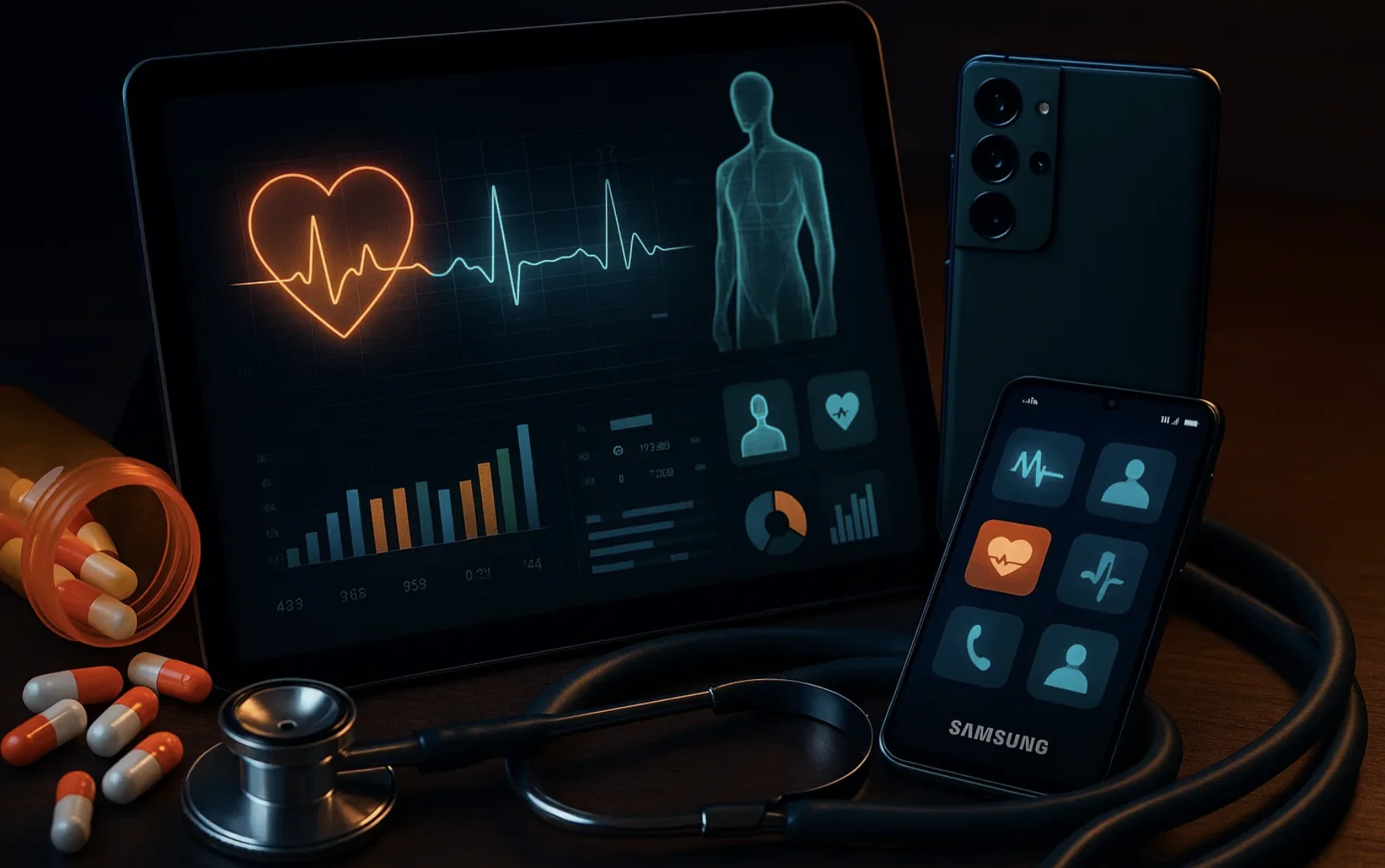Samsung, a global leader in electronics and consumer technology, is now making a bold move into the digital healthcare arena. The company has announced plans to launch a revolutionary “Health Hub” platform, designed to bridge the gap between healthcare providers and patients by allowing seamless access and sharing of health-related data. With this development, Samsung is positioning itself as a key player in the rapidly growing health tech industry, setting the stage for an era where wearable devices and mobile technology could become essential tools for patient care.
A Strategic Step Into Healthcare Technology
Samsung’s venture into healthcare is not entirely new. Over the past decade, the tech giant has incorporated basic health monitoring capabilities into its Galaxy Watch lineup, including heart rate tracking, sleep analysis, and blood oxygen measurements. However, the upcoming Health Hub project signals a major evolution from consumer-level wellness tools to an integrated healthcare ecosystem that connects users directly with medical professionals.
The Samsung Health Hub will reportedly centralize patient health data gathered from various devices — including Galaxy smartphones, tablets, smartwatches, and other Samsung health products — and make that data securely available to healthcare professionals through a dedicated platform. The aim is to provide a more complete, real-time view of a patient’s health, ultimately improving diagnosis, monitoring, and treatment outcomes.
Core Features of Samsung’s Health Hub
While official details are still emerging, early insights into the platform suggest that Samsung is prioritizing both accessibility and privacy. Here are the expected core features:
-
Unified Health Data Management
Health Hub will collect and organize data such as blood pressure, heart rate, ECG readings, fitness metrics, and sleep cycles into a centralized dashboard. This unified data will allow medical professionals to get a longitudinal view of patient health trends. -
Secure Doctor-Patient Connectivity
Patients will have the option to share specific health data with their doctors, enabling remote consultations or pre-visit diagnostics. This reduces the need for in-person visits and could be a game-changer for chronic disease management or elderly care. -
Integration With Hospitals and Clinics
Samsung is in discussions with healthcare providers to integrate Health Hub into existing medical systems. This could allow hospitals to receive wearable data directly into electronic health records (EHRs), increasing efficiency and reducing administrative overhead. -
AI and Predictive Analytics
Samsung’s robust experience with artificial intelligence is expected to be a foundational element of the platform. Machine learning algorithms could analyze patient data to detect anomalies and provide early warnings for conditions like atrial fibrillation, hypertension, or sleep apnea. -
Global and Localized Rollouts
Although the platform is expected to debut in South Korea, Samsung plans to expand Health Hub internationally in phases, starting with countries that have adopted digital health regulations and telemedicine infrastructure.
Digital Health in a Post-Pandemic World
The global healthcare landscape has changed drastically since the COVID-19 pandemic. There is a growing emphasis on remote patient monitoring, preventative care, and digital record-keeping. Samsung’s Health Hub arrives at a moment when governments and private healthcare systems alike are looking for scalable, tech-powered solutions to manage large populations and increase access to care.
Digital health is no longer a niche market. It is projected to be worth over $660 billion globally by 2025, according to Statista. Samsung’s entry into this space reflects a strategic shift in its business model — from purely hardware-focused to software and service-based ecosystems. The Health Hub could help Samsung compete directly with Apple HealthKit and Google Fit, both of which have seen strong traction in the U.S. and Europe.
Partnerships and Ecosystem Development
Samsung has reportedly initiated talks with multiple stakeholders in the healthcare industry, including hospitals, insurance companies, wearable sensor manufacturers, and health data regulators. These partnerships will be critical in shaping the future of Health Hub, particularly in ensuring compliance with privacy laws like HIPAA (U.S.) and GDPR (EU).
One unique advantage for Samsung is its extensive reach in hardware. With millions of Galaxy devices already in circulation, the company can deploy its health platform without requiring users to buy new gadgets. This built-in user base gives Health Hub an immediate edge over startups and smaller health tech firms.
Challenges Ahead
Despite the strong potential, Samsung faces a number of hurdles:
-
Data Security and Privacy Concerns: The success of Health Hub will depend on user trust. Any security breach or misuse of sensitive health data could have severe repercussions.
-
Regulatory Approval: Rolling out such a platform globally involves navigating a complex web of healthcare regulations, data protection laws, and certification processes for medical devices.
-
Healthcare Professional Buy-In: Doctors and clinics may be slow to adopt yet another digital system unless it integrates seamlessly with their existing workflows.
Conclusion: A Promising Leap Forward
Samsung’s new Health Hub represents a significant leap toward a more connected, personalized, and data-driven approach to healthcare. By leveraging its existing technology ecosystem and investing in secure, intelligent platforms, Samsung is well-positioned to reshape how patients and providers interact in the digital age.
The Health Hub could democratize access to care by providing real-time health data and facilitating faster interventions. While it may take time for the platform to reach its full potential, the initiative marks a promising step forward not only for Samsung but also for the broader digital health revolution.
As the boundaries between consumer tech and medical tools continue to blur, Samsung’s bet on healthcare could be one of its most impactful innovations in the years to come.
